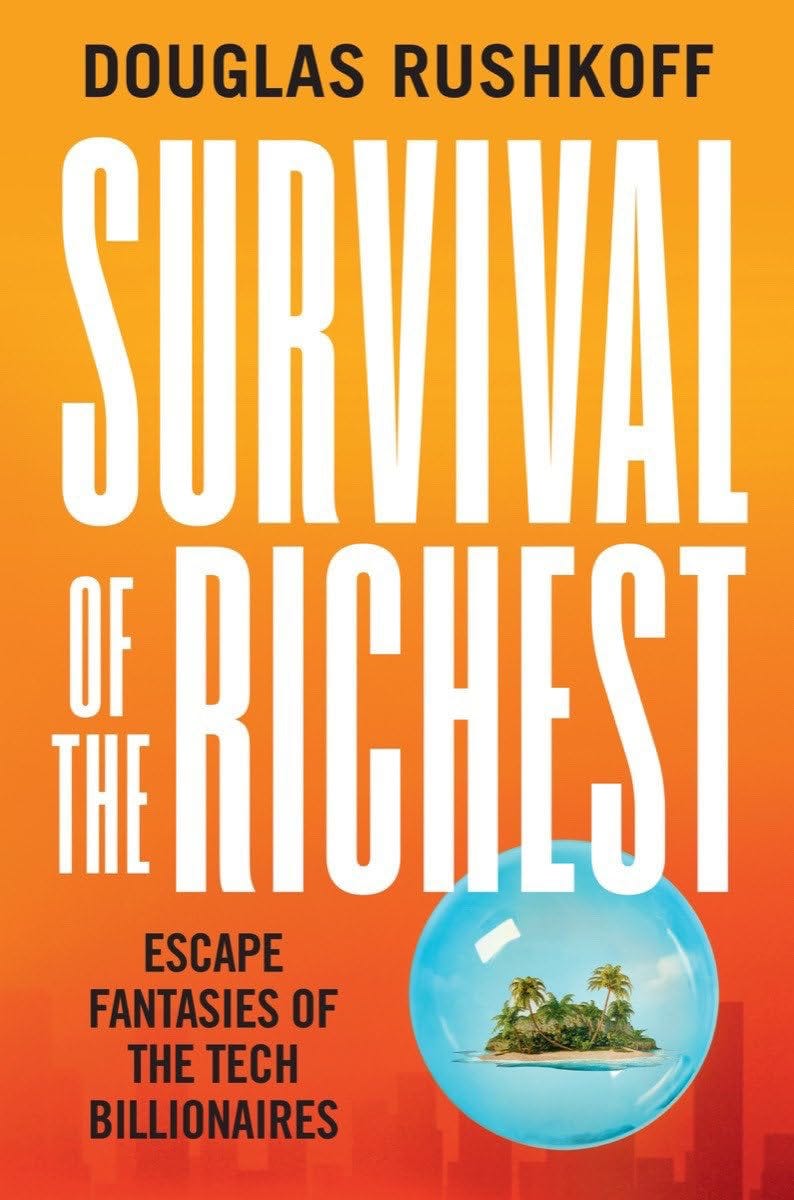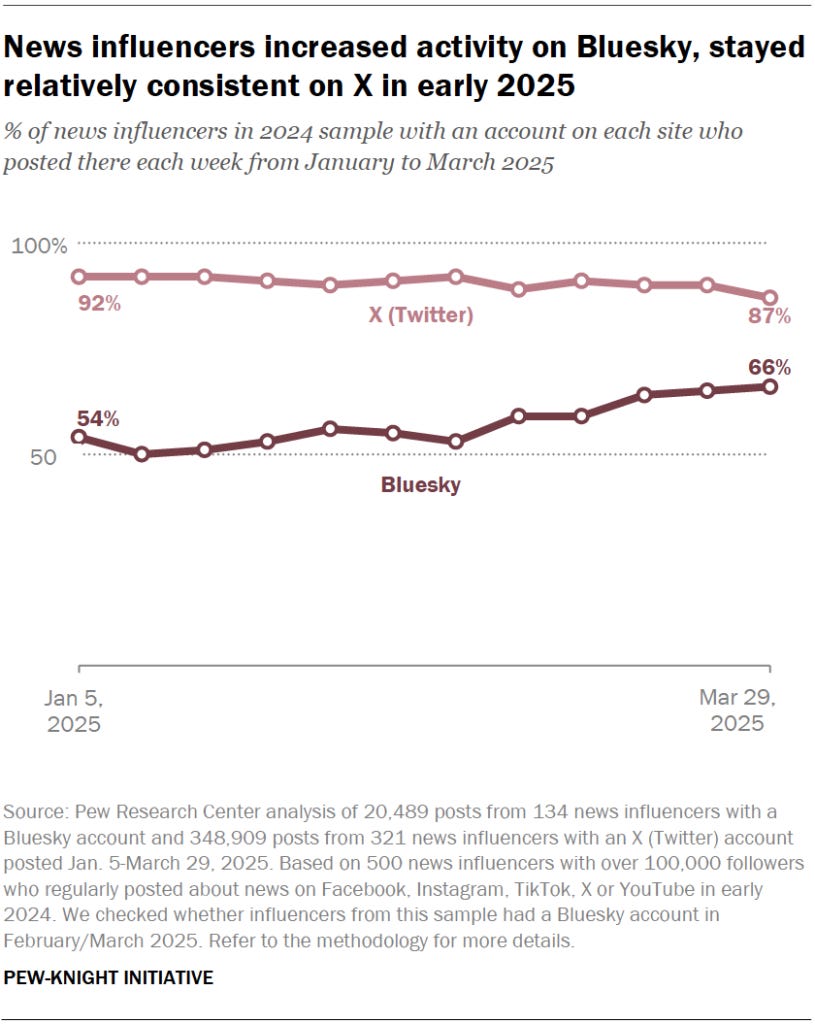This week…
Your reading time is about 5 minutes. Let’s start.
I want to bring your attention to a CTV’s W5 documentary released this weekend about a network of rapists who secretly abuse women. I think the video is paywalled outside of Canada (sorry, you can read the story here) but it’s not quite the subject of the investigation that I would like to talk about. Rather, it’s the method in which they presented their findings: The W5 team chose to use AI to digitally alter the faces of the survivors instead of blurring or other typical means of protecting their identity.
Of course, this isn’t the first time it’s done; I spoke with documentary filmmaker Ineza Roussille a while ago on TSB discussing the 2020 documentary Welcome to Chechnya (dir. David France), which used the same approach. You might also remember Indian journalist Yusuf Omar who similarly used Snapchat filters for the same reason.
Could this be the way to go? At least one group of documentary producers and researchers believe so. They, as the Archival Producers Alliance (APA), responded by publishing a set of ethical guidelines to “help producers, film-makers, studios, broadcasters and streamers address questions over use the use of the technology.” TL;DR: APA doesn't reject AI outright, but encourages ethical considerations including transperancy. What do you think?
Your Wikipedia this week: Mental reservation
And now, a selection of top stories on my radar, a few personal recommendations, and the chart of the week.
ICYMI: The Previous Block was about cybercrime and the manosphere.
CORRECTION NOTICE: None notified.AI & COMMUNICATION
The face isn’t real, but her story is: Why W5 used AI on an interview with a rape survivor
Avery Haines and Joseph Loiero for CTV News:
In the opening minutes of our documentary, Sleeping With the Enemy, viewers meet “Melanie,” a Canadian woman whose life was shattered by a Facebook message on the weekend of her bridal shower.
[…]
But how do you tell Melanie’s story and those of other survivors we interviewed, when the people most harmed fear being seen?
That question led us to the groundbreaking decision to use artificial intelligence to digitally reconstruct the faces of survivors.
Not to distort the truth, but to deliver it.
Some distressing content in the original link (TW), nonetheless, this piece takes the audience behind the story to understand the decision to go with AI. Loosely linked:
These pioneers are working to keep their countries’ languages alive in the age of AI news by Gretel Kahn for RI.
When AI becomes less intelligent beyond the English-speaking world by Surachanee Sriyai for Fulcrum.
AI-powered fanfiction blurs political reality by David Weigel and Kadia Goba for Semafor.
Weaponised storytelling: How AI is helping researchers sniff out disinformation campaigns by Mark Finlayson and Azwad Anjum Islam (Florida International University) for The Conversation.
INFLUENCING THE NEWS
+972 and local call: Investigating Israel at war
Laura Dixon for GIJN:
The investigative journalist Yuval Abraham says he has two types of sources these days: whistleblowers from within the Israeli security forces who want fellow citizens to know what is going on, and those who are open and candid about what is happening because they feel all actions in this war are justified.
“When I approach some people, some of the sources I spoke with, they were drafted or re-drafted into the intelligence community after October 7,” the date of the 2023 Hamas attack that led to the subsequent assault on Gaza, he said. While they had been motivated by the horrors of that massacre to sign up, they “very quickly realiSed they were now involved in atrocities.”
“This is the ideological group—people like whistleblowers—they feel have committed crimes, they have harmed Palestinian families, they have killed people and they wanted the Israelis to know about it,” Abraham explained. The other group, he said, who hold almost the opposite perspective, “don’t see what’s wrong with what they did.”
Loosely linked:
Should European publishers use Substack for their newsletters? by Romain Chauvet for The Fix.
How social media lies fuelled a rush to war between India and Pakistan by Hannah Ellis-Petersen for The Guardian.
Bluesky has caught on with many news influencers, but X remains popular by Galen Stocking, Regina Widjaya, Luxuan Wang, and Naomi Forman-Katz for Pew Research Center.
Other curious links, including en español et français

LONG READ | The math tutor and the missing $533 million by Yudhijit Bhattacharjee for Rest of World.
INFOGRAPHIC | How accurately are Asian Americans cast in Hollywood? by Dorothy Lu and Anna Li for The Pudding.
INTERACTIVE | What life is like in Sudan, where a devastating crisis has changed lives forever by Giles Clarke and Kyle Almond for CNN.
PHOTO ESSAY | Dancing through heritage: Gawai Parade lights up Kampung Taee with Bidayuh pride by Shikin Louis for Dayak Daily. Silamat andu gawai ndug bangsa Dayak. <3
Los enlaces han sido desde el inicio la unidad básica de comunicación en internet. La IA está exterminándolos poco a poco por Javier Pastor en Xataka.
Ansiedad por las noticias y comisarias con kits de supervivencia que pueden multiplicarla por José Precedo en elDiario.es.
¿Podemos juzgar a un algoritmo? por Sílvia Casacuberta (University of Oxford) en The Conversation.
Le gouvernement retire une vidéo générée par IA sur la Résistance, à la suite d’une erreur historique par Michaël Szadkowski dans Le Monde.
Les infractions sexuelles commises par les ados passent-elles sous le radar? par Denis Wong et Marie-Pier Mercier dans Radio-Canada.
J’ai testé pour vous : me créer un « second cerveau » numérique par Claire Roussel dans Usbek & Rica.
What I read, listen, and watch
I’m reading Survival of the Richest: The Tech Elite’s Ultimate Exit Strategy (2022) by Douglas Russkoff. Rushkoff took us on a journey to Mars missions, secret bunkers, and the metaverse to see how billionaires prepare to escape the apocalypse they’re unleashing on the rest of us. (Insert eyeroll.)
I’m listening to how race science shows up at the doctor’s office on NPR’s Code Switch.
I’m watching France’s declining influence in Africa on Arte.tv.
Chart of the week
If you’re looking to be a news influencer, you’ll probably want to try out Bluesky. More from the Pew analysis here. My last post on Bluesky was about Pokemon.





